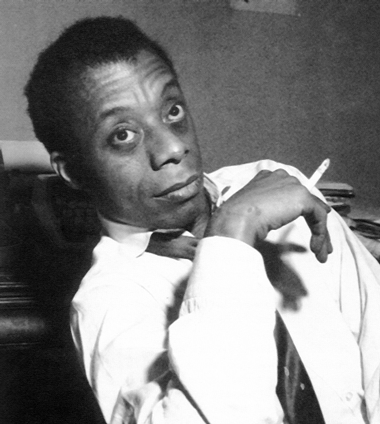Speaking to James Baldwin before he departs to Mississippi in 1964
The ring of that telephone at the New York Post 41 years ago is a long way from the front page of last Friday’s New York Times, but not so far that I don’t hear it all over again.
“Hey, man,” said Rip Torn over the phone, “whatever you’re doing at the newspaper, forget it. Jimmy Baldwin wants to see you. Right now. He’s up in an apartment, alone, on 57th Street. I’ll come and get you in a taxi.”
I knew Rip, I’d written about him, reviewed him, interviewed him, talked with him, spent some hours on a number of days gabbing with him about the Actors Studio, Strasberg, Kazan, Clurman, Arthur Miller’s “After the Fall” and, of course, James Baldwin’s “Blues for Mr. Charlie,” the overheated play up on Broadway right then in which Rip, portraying a vicious redneck, was one of the stars. I guess you could say Rip and I were friends—professional acquaintances, but friends nevertheless.
I had probably also read—devoured—almost every printed line ever written by James Baldwin, one of America’s most readable, most passionate, most penetrating essayists then and now. I knew lots of people who knew Baldwin, which means I knew lots about him over and above what he’d written. But I had never in my life met him, and had no idea Jimmy Baldwin knew that I existed.
This was June of 1964: the “Freedom Summer.” Remember?
“He’s scared,” Rip said in the taxi. “He’s going down South for the first time in his life, or his recent life, and he’s scared. He wants me to know and he wants you to know. He wants some white people to know. I’m a preacher, buddy,” Rip said with a Torn, not to say ragged, laugh. “I’m a preacher,” he said, clapping me on the knee, “and you’re a preacher too. Don’t deny it.”
The apartment on 57th Street was tiny, and when we got there Baldwin was scrunched up on the only couch, or daybed, in the no less tiny living room. He was hugging his knees, in the fetal position.
I said a few nice things—well, I don’t know what I said—and he pretty quickly got around to saying: “I want to see Freedom Summer for myself. I’m going down to Mississippi, and I’m terrified.”
I tried to soft-soap his terror, telling him he’d be all right.
“No,” he said, “you don’t understand. It’s like Nazi Germany down there.”
“Oh, now,” I said. “It’s not like Nazi Germany. Bad, maybe, but not like Nazi Germany.” And so on and so forth, pontifically.
“Yes it is,” Baldwin said. What he wanted was my phone number, or numbers. I wrote them down for him. I don’t really remember if Rip left with me. Probably he stayed. I left as best I could and went back down to the newspaper.
That was mid-June. One week later, on June 21, 1964, three young civil rights workers named James Chaney, Michael Schwerner and Andrew Goodman—heading in a Ford station wagon from the ruins of a black church that had been fire-bombed in Philadelphia, Mississippi—were arrested for “speeding” by Neshoba County Sheriff Cecil Price.
From the city room of the New York Post, I called the sheriff’s office. A young woman answered the phone. When I identified myself as a reporter from the New York Post wanting to know about the missing young men, she replied, in a soft Southern accent and copy-book cliché that it would be better if you people up there stayed out of things you know nothing about, and minded your own business. Then she hung up.
Six weeks later, the bodies of Chaney, Schwerner and Goodman were found buried under an earthen dam on the outskirts of Philadelphia, Mississippi. Schwerner, 24, and Goodman, 20, who were white (and Jewish), had been shot in the chest; Chaney, 21, who was black, had been beaten to death.
Cecil Price and several others did a few years in jail for federal violations of the three victims’ civil rights. But not until this past week had anyone ever been arrested for the murder of Chaney, Schwerner and Goodman. That was the story on the front page of Friday’s New York Times: the arrest of 79-year-old Edgar Ray Killem, of Philadelphia, Mississippi, for the murder of those three men.
The Times referred to Edgar Ray Killem as a onetime Ku Klux Klansman. He is also a preacher, though not what Rip Torn, hell-raising East Texas radical, would call a preacher. Nor would Jimmy Baldwin, for that matter, whose father was a preacher.
Well, Jimmy, you were right and I was wrong. It was like Nazi Germany. But there’s also this: what goes around comes around.
gaycitynews.com


































